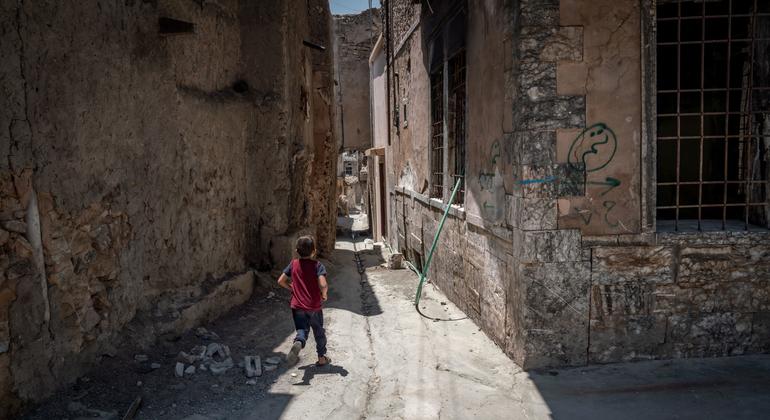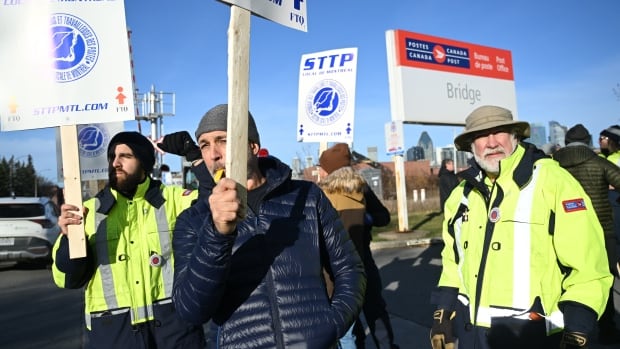
Ms. Hennis-Plasschaert, also the head of the UN Assistance Mission for Iraq (UNAMI), cited notable advancements in infrastructure, economic reforms, and regional influence, signalling an Iraq on the rise.
“[Today] Iraq looks different to the country to which UNAMI was first deployed some 20 years ago. Indeed, it looks different to the country I arrived in, in 2018. We are, so to speak, witnessing an Iraq on the rise,” she said.
However, she acknowledged challenges such as corruption, factionalism, impunity and armed actors remain significant hurdles.
“While the Government is tackling these scourges, they still represent major hurdles to be overcome,” she added.
“The same goes for feelings of marginalization and exclusion, which are spreading in and among certain communities. If left unaddressed, they risk fanning the flames of intra- and inter-community tension.”
Protect human rights
The senior UN official expressed worries over a recent increase in unannounced executions under anti-terrorism laws.
Additionally, the fundamental rights and freedoms of all Iraqis are yet to be fully safeguarded, she continued, noting that women’s empowerment remains a critical issue, with many women still waiting for a seat at the decision-making table.
“What this shows is that women’s empowerment must move beyond symbolism,” she said.
“And the need for an active, empowered and protected civic space is as present as ever,” she added.
Sombre anniversary
Ms. Hennis-Plasschaert also highlighted that this summer will mark a sombre anniversary – a decade since Da’esh (also known as the Islamic State of Iraq and the Levant or ISIL) committed the genocide against the Yazidi people.
“At this stage, I can only express hope that the upcoming anniversary will not be wasted but rather used by all authorities, actors and stakeholders to unite and step up to the plate with the sole aim of serving the people of Sinjar,” she said.
Continued polarization
Turning to the political situation, Ms. Hennis-Plasschaert noted that holding local elections in December 2023 was a positive step, with most government councils now operational. However, two provinces remain at an impasse, with political negotiations dragging on.
In the autonomous Kurdistan region, political polarization has intensified, and regional elections postponed, she added, warning that “the stakes are high – including and increasingly – within the context of the legitimacy of [the region’s] institutions.”
The replacement of Iraq’s parliamentary speaker has also stalled, reflecting internal divisions.
“I can only emphasize, for multiple reasons, the importance of having the speaker in the chair,” she said, expressing hope for resolution with the upcoming parliamentary vote.

SRSG Hennis-Plasschaert (on screen) briefing the Security Council via video link.
Regional dynamics
On a regional scale, Iraq has shown strong resolve in preventing escalation into wider conflicts, contributing to a more stable security environment. Yet, the risk of miscalculation remains high due to the presence of armed actors operating outside state control, the UN envoy said.
The return of Iraqi nationals from camps in northeastern Syria is progressing, but time is of the essence, she noted, cautioning that keeping people indefinitely in restrictive conditions creates greater security risks.
Thursday also marked Ms. Hennis-Plasschaert’s final briefing to the Security Council in her role as the Special Representative for Iraq before she steps down at the end of May. The former Minister of Defense of Netherlands was appointed on 31 August 2018, succeeding Ján Kubiš of Slovakia.
Iraq requests Mission closure
In the debate that followed Ms. Hennis-Plasschaert’s briefing, the Iraqi Government requested that UNAMI’s work be concluded by the end of next year, and that its efforts, until that time, focus on economic reform, service delivery, sustainable development, climate change and other developmental matters.
Abbas Kadhom Obaid Al-Fatlawi, Deputy Permanent Representative of Iraq to the UN, recalled Security Council resolution 2682 (2023), which formed an independent strategic review team on UNAMI.
He stated that the review concluded that the Mission was no longer needed due to the positive developments and important accomplishments Iraq witnessed in all fields.
A number of Security Council members echoed the Iraqi representative’s call for the end of the UNAMI mandate on 31 December 2025, with the Russian representative stressing that the Mission, after more than 20 years since its establishment, had fulfilled its potential to support the rebuilding of Iraqi statehood.
“The remaining problems should not be used as an excuse for the Mission’s endless presence there,” he said.
However, the representative of the United States pushed back on calls to draw down UNAMI, underlining the importance of its work in resolving outstanding issues between Iraq and Kuwait.
Also welcoming the Mission’s efforts to support Iraqi elections, she noted that the review also recommended that the formation of a government after parliamentary elections “be regarded as a milestone for the orderly and responsible completion of UNAMI’s mandate”.
Click here for the full coverage of the meeting






